Host Francesca Rheannon talks with food writer Betsy Block about THE DINNER DIARIES: Raising Whole Wheat Kids in a White Bread World . Funny and informative, it chronicles how Block got her family –even the pickiest eaters to change their eating habits. And Dr. John La Puma, AKA ChefMD, tells us how the most delicious meals can be good medicine for our bodies. His book is CHEF MD’S BIG BOOK OF CULINARY MEDICINE: A Food Lover’s Road Map to Losing Weight, Preventing Disease, and Getting Really Healthy. Continue reading
All posts by Francesca Rheannon
Joan Wickersham, THE SUICIDE INDEX and Jennet Conant, THE IRREGULARS
Podcast: Play in new window | Download
Subscribe: Apple Podcasts | RSS
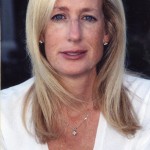
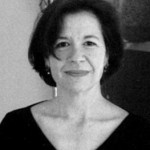
Host Francesca Rheannon talks with writer Joan Wickersham about her powerful new memoir, [amazon-product text=”THE SUICIDE INDEX: Putting My Father’s Death in Order” type=”text”]0156033801[/amazon-product]. Also, we talk with Jennet Conant about [amazon-product text=”THE IRREGULARS: Roald Dahl and the British Spy Ring in Wartime Washington” type=”text”]0743294599[/amazon-product]. Continue reading
Peter Manseau, SONGS FOR THE BUTCHER’S DAUGHTER and E.H. Winthrop, DECEMBER
Podcast: Play in new window | Download
Subscribe: Apple Podcasts | RSS
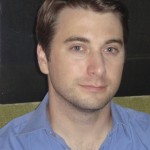
Host Francesca Rheannon talks to Peter Manseau about his novel [amazon-product text=”SONGS FOR THE BUTCHERS DAUGHTER” type=”text”]1416538712[/amazon-product] and to Elizabeth Hartley Winthrop about her new novel, [amazon-product text=”DECEMBER” type=”text”]0307388573[/amazon-product]. Continue reading
Alan Kronzek, SORCERER’S COMPANION and Studs Terkel Remembered
Podcast: Play in new window | Download
Subscribe: Apple Podcasts | RSS
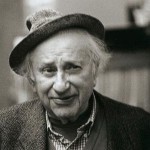
It’s Halloween, time to take a break, if you can, from obsessively checking the latest presidential poll results, and have some fun. Today, we train our literary focus on hocus-pocus by exploring the magic of the Harry Potter series with magician Allan Kronzek.  He wrote [amazon-product text=”The Sorcerer’s Companion: A Guide to the Magical World of Harry Potter” type=”text”]0767919440[/amazon-product]. The most popular lexicon of the lore that underlies the Harry Potter series, THE SORCERER’S COMPANION will tell you where to find a basilisk today, how to get rid of a goblin, or who wore the first invisibility cloak, among much other useful and arcane information.
[amazon-product align=”left”]0767919440[/amazon-product]
A best-seller, it came out first in 2001 and was updated and re-issued in 2004. Â Alan Kronzek co-authored the book with his daughter, historian Elizabeth Kronzek.
Kronzek is also the author of [amazon-product text=”FIFTY TWO WAYS TO CHEAT AT POKER: How to Spot Them, Foil Them, and Defend Yourself Against Them” type=”text”]0452289114[/amazon-product] . Stay tuned to this site to hear Kronzek talk about poker with Francesca.
Also, we remember the great Studs Terkel, who died October 31, 2008 at the age of 96. We air an excerpt from an interview we did with him in 2006 about his last book, [amazon-product text=”AND THEY ALL SANG: Adventures of an Eclectic DIsc Jockey” type=”text”]1595581189[/amazon-product].
Terry Tempest Williams, MOSAIC
Podcast: Play in new window | Download
Subscribe: Apple Podcasts | RSS
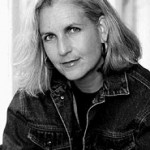
In Part One of this week’s show, we talk with writer and naturalist Terry Tempest Williams about her new book, [amazon-product text=”Finding Beauty in a Broken World” type=”text”]0375420789[/amazon-product]. (Part Two, David Danelo talking about THE BORDER: Exploring the U.S.-Mexican Divide, will appear as a separate podcast.) Continue reading
Web Extra: Williams reads from Finding Beauty in a Broken World
Podcast: Play in new window | Download
Subscribe: Apple Podcasts | RSS

Writer and naturalist Terry Tempest Williams reads from her new book, [amazon-product text=”Finding Beauty in a Broken World” type=”text”]0375420789[/amazon-product].
Comix as Art and Politics: Art Spiegelman and Greg Palast
Podcast: Play in new window | Download
Subscribe: Apple Podcasts | RSS

Host Francesca Rheannon talks with comix master Art Spiegelman. When Spiegelman’s [amazon-product text=”Maus I: A Survivors Tale: My Father Bleeds History” type=”text”]0394747232[/amazon-product] was published in 1986, (followed by [amazon-product text=”Maus II: A Survivors Tale: And Here My Troubles Began” type=”text”]0679729771[/amazon-product] in 1991), it exploded notions about the limited role of comix as art and literature.
[amazon-product align=”right”]0375423958[/amazon-product]
Winning a special Pulitzer Prize in 1992–the only comic book ever to do so–Maus is a memoir in graphic form of Spiegelman’s father’s experiences in Auschwitz and the impact that had on the artist’s own childhood growing up in New York City. His mother was also a survivor of the Nazi concentration camps. In 1968, she committed suicide, soon after Spiegelman himself was released from a mental hospital after suffering a nervous breakdown.
Maus was prefigured in an earlier work, Prisoner on the Hell Planet and in 1978 Spiegelman included that and other works in a collection of his underground comix called [amazon-product text=”Breakdowns: Portrait of the Artist as a Young %@&*!” type=”text”]0375423958[/amazon-product]. Innovative and drawn in a variety of styles in large format–the book sank like a stone. But now Spiegelman has “re-birthed it”, as he told me, with a new 20 page introduction and an afterword. We talk to him about BREAKDOWNS and breaking conventions in the comix.
[amazon-product align=”left”]061525781X[/amazon-product]
Also, investigative journalist Greg Palast talks about the new comic book he produced with Robert F. Kennedy, Jr., [amazon-product text=”STEAL BACK YOUR VOTE!” type=”text”]061525781X[/amazon-product]. With illustrations by Ted Rall and other artists, the book is about the threat of massive voter suppression in the upcoming election and how to counter it. [Note: the audio to this segment has been removed.]
DISPATCHES FROM THE RELIGIOUS LEFT
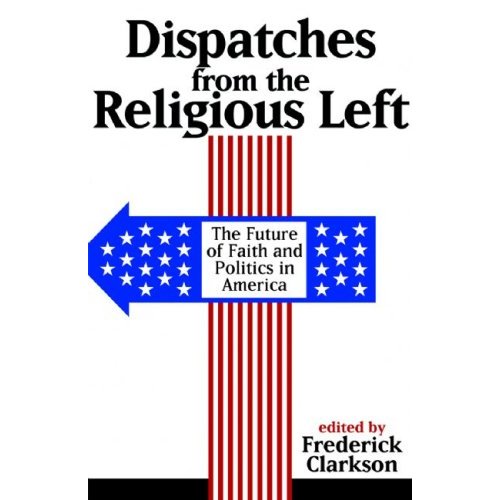 We talk with Fred Clarkson, co-founder of Talk2Action, about the book he just edited: Dispatches from the Religious Left: The Future of Faith and Politics in America. We also talk with Chip Berlet about the essay he contributed to the book. And contributor and organizer Leo Maley tells us about how the religious Left organized successfully in Massachusetts to support marriage equality for same-sex couples. Continue reading
We talk with Fred Clarkson, co-founder of Talk2Action, about the book he just edited: Dispatches from the Religious Left: The Future of Faith and Politics in America. We also talk with Chip Berlet about the essay he contributed to the book. And contributor and organizer Leo Maley tells us about how the religious Left organized successfully in Massachusetts to support marriage equality for same-sex couples. Continue reading
Ron Suskind, THE WAY OF THE WORLD and ELIZABETH WINTHROP, COUNTING ON GRACE
Podcast: Play in new window | Download
Subscribe: Apple Podcasts | RSS
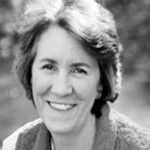
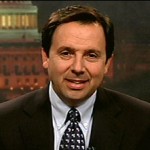
Francesca talks with Pulitzer Prize winning journalist Ron Suskind about [amazon-product text=”The Way of the World: A Story of Truth and Hope in an Age of Extremism” type=”text”]0061430633[/amazon-product]. Also, Elizabeth Winthrop on [amazon-product text=”COUNTING ON GRACE” type=”text”]0553487833[/amazon-product], the story of an 11-year old girl working in the textile mills of Vermont at the turn of the twentieth century. Continue reading
Web Extra: Elizabeth Winthrop’s Discovery of Addie Card
Podcast: Play in new window | Download
Subscribe: Apple Podcasts | RSS
[amazon-product align=”right”]0553487833[/amazon-product]

Elizabeth Winthrop paints a vivid portrait of the plight of child laborers in the New England textile mills in the early 1900’s. She bases her main character, Grace, on the photograph by Lewis Hine of a young girl posed in front of her machine. While writing the book, Winthrop went in search of the real person behind the photo and found out the remarkable story of Addie Card.
To listen to the whole interview, click here.
David Cay Johnston, FREE LUNCH
Podcast: Play in new window | Download
Subscribe: Apple Podcasts | RSS
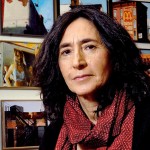
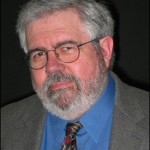
Francesca interviews reporter David Cay Johnston about his investigation into how government policy is rigged to enrich the super wealthy. And Francine Prose talks about GOLDENGROVE, her new coming-of-age novel. Continue reading
T.J. English, HAVANA NOCTURNE and Marisa Silver, GOD OF WAR
Podcast: Play in new window | Download
Subscribe: Apple Podcasts | RSS
[amazon-product align=”right”]0061712744[/amazon-product]
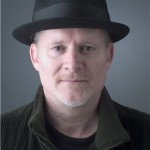
Francesca talks with journalist T. J. English about the Mafia’s Cuba experiment, the parallels between the Mob and legal capitalism, and the role Mob activities played in spurring the Cuban Revolution into being. His bestselling book is HAVANA NOCTURNE: How the Mob owned Cuba…and Then Lost It to the Revolution.
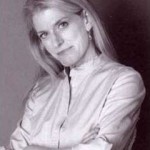
Also, Marisa Silver tells us about her haunting novel, THE GOD OF WAR. Set in the arid landscape by the Salton Sea of California, GOD OF WAR is a powerful coming-of-age novel about a boy who confronts the need to balance his responsibility to his family with his emerging sense of self.
[amazon-product align=”right”]1416563172[/amazon-product]“Marisa Silver’s The God of War is a novel of great metaphorical depth and beauty. It stays with you like a lesson well and truly learned.” — Richard Russo, author of Empire Falls
Toxic Cosmetics
Podcast: Play in new window | Download
Subscribe: Apple Podcasts | RSS
Francesca talks first with Stacy Malkan about NOT JUST A PRETTY FACE: The Ugly Side of the Beauty Industry. She’s communications director of the Campaign for Safe Cosmetics and admitted former teenage make-up diva.
David Lovelace, SCATTERSHOT and Maggie Jackson, DISTRACTED
We talk with David Lovelace about his memoir, SCATTERSHOT: My Bipolar Family. And Maggie Jackson tells us about DISTRACTED: The Erosion of Attention and the Coming Dark Age. Continue reading
The Secret Fundamentalism at the Heart of American Power
Podcast: Play in new window | Download
Subscribe: Apple Podcasts | RSS
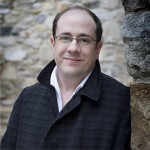
Host Francesca Rheannon talks with journalist Jeff Sharlet about his bestselling new book, [amazon-product text=”The Family: The Secret Fundamentalism at the Heart of American Power” type=”text”]0060560053[/amazon-product]. It’s about the real “New World Order” of elite fundamentalism that threatens our democracy. Continue reading
